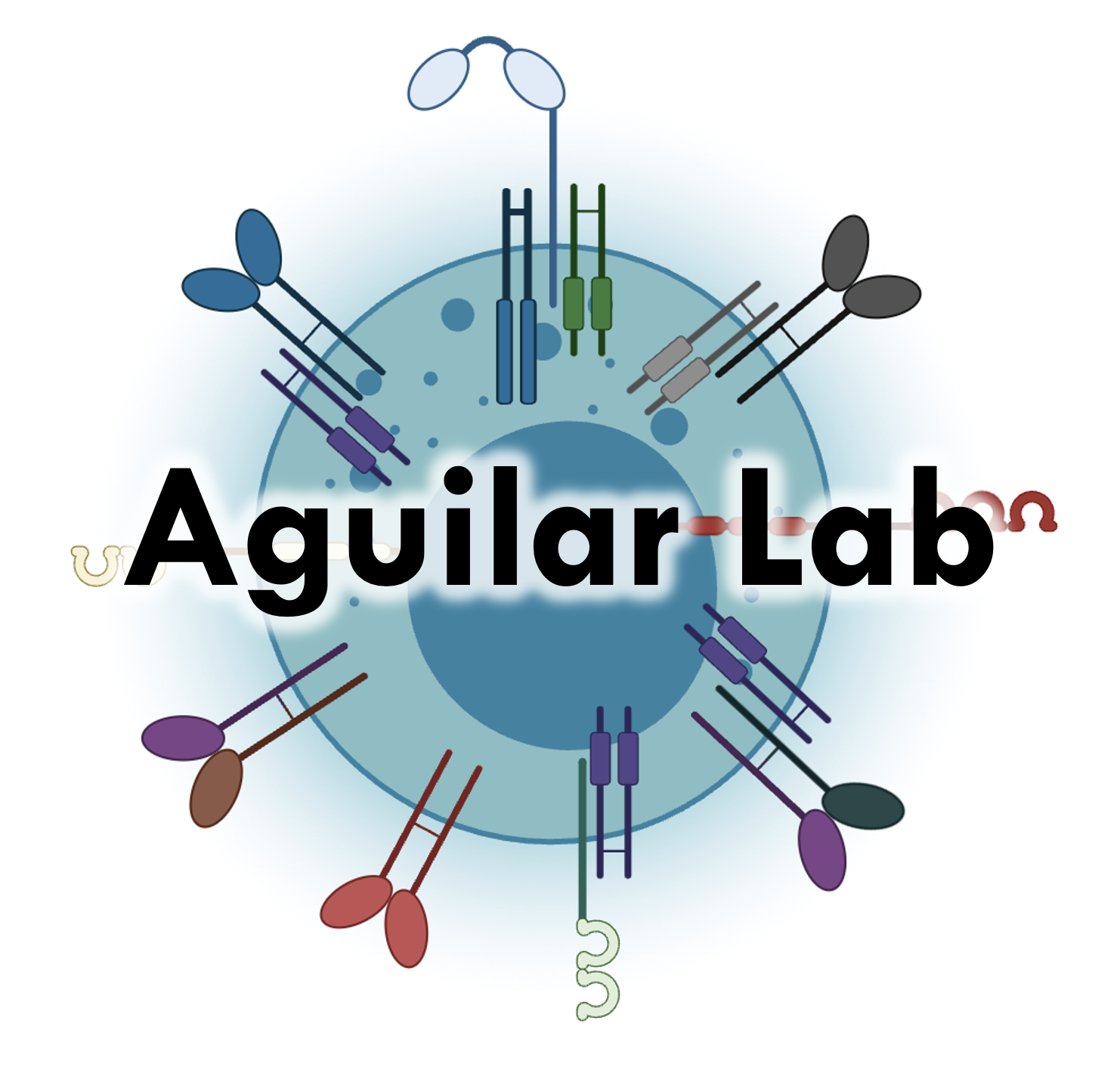The Aguilar Lab studies natural killer (NK) cells, which are critical members of our immune system tasked with protecting us from viral infections and cancers. They are innate lymphocytes that use cell surface NK receptors to distinguish between self and non-self (or altered-self). If a target cell has been identified as harmful, NK cells release cytotoxic granules that directly kill the target cell. The NK field has greatly advanced our understanding of these cells however, there remain many outstanding questions. The Aguilar lab is working to fill in some of these gaps.
- CD16 Fc receptor Biology. In comparing human and mouse NK cell activation through their CD16 Fc receptor, we discovered that these two species behave differently – a difference that is due to the CD3-zeta adaptor molecule. Therefore, we are investigating ways to generate a mouse model with humanized CD16 function to address ways to harness NK cells more effectively through CD16 activation.
- Adaptive NK cells. We now appreciate that NK cells have the ability to generate adaptive-like responses, especially to cytomegalovirus (CMV) infection, however, the signals that generate these specialized cells are not fully discovered. Therefore, we are investigating the signals that drive formation and maintenance of adaptive-like NK cells.
- Recognition and Immune Evasion by cancer and viruses. We are keen on investigating the mechanisms that viruses have evolved to evade NK cell recognition – importantly – investigating how tumor cells may employ similar mechanisms to suppress NK cell activation.
The Aguilar lab builds on training and expertise from the pioneers in the NK field to tackle these questions as we work towards harnessing NK cells for therapies. We work with human and mouse models to enhance our understanding of innate immunity.
